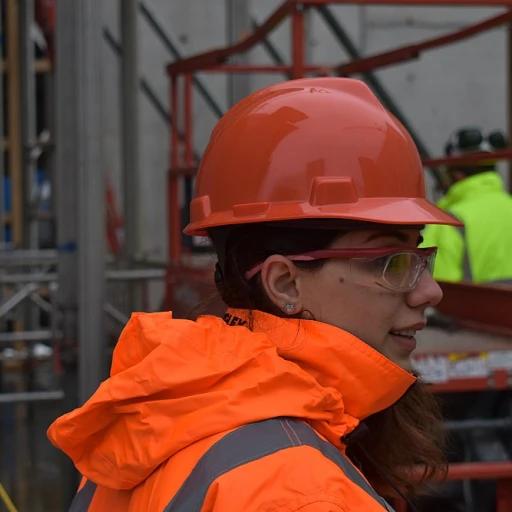
Overview of South Carolina Bill 3537
Context and Purpose of South Carolina Bill 3537
South Carolina House Bill 3537 (commonly referred to as "the bill") represents a pivotal legislative proposal that has sparked significant discussion in the state. This proposed bill seeks to modify existing laws surrounding background check procedures. The intention behind these changes is to address certain social issues while enhancing the effectiveness of background checks.
In recent years, South Carolina has been at the forefront of controversial legislative measures, and Bill 3537 is no exception. At its core, the bill attempts to balance various societal and legal considerations, including abortion legislation and the protection of life. The bill emerged amidst ongoing debates over abortion murder, and whether unborn children should be granted equal protection under state laws.
The proposal includes stipulations regarding the implications of the death penalty, aligning its provisions with house members' advocacy for pro-life measures. While aiming to protect unborn children as potential victims, the legislation advocates for recognizing prenatal equal rights. This recognition may lead to amendments in the penalty bill, ultimately affecting background check protocols that employers and agencies conduct.
Most notably, the bill could redefine who constitutes a "child victim" under South Carolina's legal framework. It places an emphasis on ensuring that entities conducting checks are aware of the latest legislative changes. Furthermore, a comparative lens is needed to assess how such proposals align with trends in other states. The evolving dynamics in legislation, such as understanding adverse media results in background checks across different jurisdictions, will be crucial in evaluating the broader ramifications of Bill 3537.
Changes in Background Check Procedures
Transformations in the Screening Process
The introduction of South Carolina Bill 3537 is poised to introduce significant changes to the background check procedures within the state. This bill is thrust into the spotlight, especially due to its potential influence on various elements such as the abortion debate, legal structures, and personal protections. It's imperative to comprehend the modifications being proposed and their implications. One notable alteration is the expanded scope of checks to include offenses related to child, unborn, and prenatal equal protection. Considering the heightened dialogue surrounding abortion, the bill takes strides toward addressing concerns of abortion murder and the protection of the unborn child. As discussions on potential death penalty applications arise, South Carolina appears to be at the forefront of redefining legal interpretations regarding this controversial issue. Background checks, traditionally centered around criminal records, now demand additional layers of scrutiny. The integration of these criteria signals a shift not only in the procedural landscape but also in the ethical and moral stances of the state. Employers and job seekers must stay attuned to how these broadened checks align with laws that recognize individuals' rights and responsibilities. For thorough understanding of evolving media narratives around such results, referring to comprehensive analyses, like those depicted in understanding adverse media results in JSON format, can prove beneficial. To accommodate the emerging requirements, the implementation of technology such as cls stroke might become more prevalent in processing these complex screenings. Corporate leaders need to brace for restructuring their human resources protocols, ensuring compliance with new state directives. The impact of these changes will cascade through every layer of hiring practices, necessitating continuous adaptation to the state's evolving legal framework.Implications for Employers
Employers Facing Clarity and Compliance Demands
Employers in South Carolina are navigating a landscape of significant policy shifts due to Bill 3537. This bill impacts how background checks are conducted, necessitating adjustments in their hiring practices to remain compliant with the new state regulations. As outlined in the recently adopted legislation, employers must stay updated with procedural changes to avoid legal pitfalls, especially in how they factor background checks into their hiring decisions.
Given the broad implications of this bill, employers may have to understand its nuances deeply. For instance, the bill addresses sensitive topics such as child and unborn protections, which might affect sectors involving prenatal and child-related services. The emphasis on equal protection for women, children, and unborn life introduces a layer of complexity that employers must handle delicately, particularly when advertising roles linked to health services or community support initiatives.
Moreover, with South Carolina's modified approach to background checks, employers are encouraged to revisit their hiring policies. The delineation between permissible inquiries and potential bias must be clearer than ever. Implementing rigorous compliance training within organizations can help mitigate risks associated with potential discrimination or bias, such as gender or pro-life debates that indirectly influence hiring decisions.
An understanding of these complexities is crucial, as employers must also prepare for the possibility of employee-driven inquiries and lawsuits, particularly from those challenging hiring decisions based on perceived 'moral' backgrounds. It is advisable for businesses to partner with legal experts to decipher these laws, laying out clear guidelines on how they determine a candidate's suitability, while ensuring their practices align with both South Carolina's and federal mandates.
As changes sweep across the state, it's essential for employers to conceptualize these updated practices as not only regulatory requirements but also as tools to foster inclusive and litigation-free environments. This preparation and understanding of the nuances of South Carolina's Bill 3537 could be key for employers striving to maintain compliant and fair hiring processes.
Impact on Job Seekers
Job Seekers and the New Landscape
For job seekers in South Carolina, the introduction of Bill 3537 brings a new set of challenges and considerations. This legislation, which alters the landscape of background checks, could significantly impact how individuals approach their job search and present themselves to potential employers.
One of the primary concerns for job seekers is the increased scrutiny that may come with the revised background check procedures. With the state placing a stronger emphasis on thorough checks, individuals might find themselves facing more detailed investigations into their past activities. This could include a deeper dive into criminal records, financial history, and even social media presence.
Moreover, the implications of the bill extend to sensitive areas such as abortion and related laws. South Carolina's stance on issues like the protection of the unborn child and the penalties associated with abortion-related offenses could influence how background checks are conducted. For instance, individuals with past involvement in activities related to abortion might experience heightened scrutiny, given the state's pro-life legislative environment.
Job seekers should also be aware of the potential for discrepancies between South Carolina's laws and those of other states. As the bill aligns with the state's unique legal framework, individuals moving from or to South Carolina might encounter differences in how background checks are performed. This could affect their employability and the types of roles they are considered for.
In this evolving landscape, it is crucial for job seekers to stay informed about the changes in background check procedures and understand how these might affect their job prospects. Being proactive in addressing any potential issues in their background and seeking legal advice if necessary can help mitigate the impact of these changes.
Comparative Analysis with Other States
Exploring Comparative Insights with Other States
The introduction of South Carolina's Bill 3537 has sparked discussions regarding its positioning relative to background check practices in other states. A core aspect distinguishing South Carolina's approach lies in its alignment with broader legal discussions encompassing areas like abortion and prenatal laws. The state's emphasis on matters such as pro-life protections for unborn children parallels discussions in other jurisdictions, where similar considerations in background checks surface, notably impacting how employers perceive candidate histories.
While many states already integrate comprehensive background check laws, South Carolina's recent changes reflect its commitment to integrating statewide legal aspects into its procedures. For example, topics around equal protection intersect crucially with background check processes, particularly when considering historical data related to criminal records. Unlike other states, which may prioritize different legal narratives, South Carolina ensures its background checks also address further-reaching implications of significant legislative shifts.
South Carolina's legislation also dovetails with similar efforts in several other states pursuing protective measures such as prenatal equal protection. This creates a more layered approach in evaluating background information, particularly where laws propose unique elements like child victim protection under a distinct lens. This holistic view can have a significant impact on how background check data is both gathered and interpreted, making South Carolina's methods noteworthy when considering the state’s comprehensive legal framework.
Comparatively, the procedural adjustments influenced by such bills are not isolated to South Carolina alone. Other states, driven by varying legislative priorities around themes such as cls stroke law and death penalty considerations, explore different implementation timelines and depth in their policies. However, it's essential to note that South Carolina's legislative measures stand out for their direct correlation with intricate legal protections and policies deeply ingrained in the state's statutes.
Future Trends in Background Checks
Emerging Trends and Future Prospects in Background Checks
The passage of South Carolina's Bill 3537 highlights significant shifts in background check policies. As we look forward, certain trends are likely to shape the landscape of background checks across various states.- Legislative Adaptations: Many states are analyzing South Carolina's recent measures, considering similar approaches that center on increased scrutiny and thorough vetting processes. Legislations like abortion-related checks could form a part of background procedures, aiming to align with pro-life statutes and equal protection laws for unborn children.
- Integration of New Technologies: There's a move towards adopting advanced technologies and digital platforms to streamline the background check procedure. Enhancements in data aggregation and analytics might better equip employers to assess potential hires with precision, optimizing both time and resources.
- Balancing Privacy and Transparency: The new legislative demands push for a delicate balance between an individual's privacy rights and the employer's need for transparency in hiring. This trend, emerging in the wake of revised state guidelines like South Carolina's bill, continues to challenge lawmakers.
- Sector-Specific Changes: Industries with higher stakes, like childcare or healthcare, may see more pronounced adjustments. Emphasizing stringent checks for roles with vulnerable or at-risk groups remains a priority, as seen in the protections extended to child victims under various state bills.
- Interstate Legislative Influence: Similar to how South Carolina's legislation might influence neighboring states, there's an observable ripple effect, as states aim for cohesive regional regulations. This trend speaks to an increasing alignment of state laws with overarching federal guidelines.













